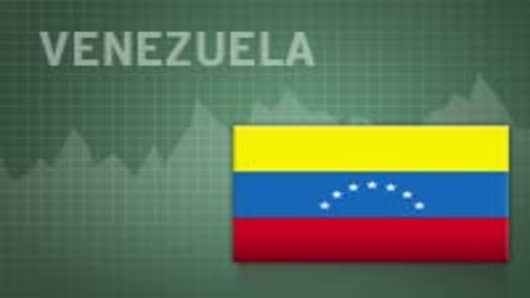Venezuela is preparing a "windfall" oil tax to boost the OPEC nation's revenues from record crude prices, only months after leftist President Hugo Chavez's nationalization crusade forced out two of the world's largest energy companies.
The move extends Chavez's broad campaign to boost state control over oil operations that led
to legal battles with Exxon Mobil and ConocoPhillips and helped spark a wave of resource nationalism throughout the Andes.
"Because of high oil prices, oil companies have excessive earnings that go beyond reasonable levels of profitability," Legislator Angel Rodriguez told state news agency ABN.
"One way to distribute them to our people, who are the owners of the oil, is to create this tax." The windfall tax will take 50 percent of oil revenue above $70 per barrel, Rodriguez said, and an additional 60 percent of revenue over $100 per barrel.
Rodriguez said Congress, completely controlled by Chavez's allies, would give initial approval to the measure this week.
The move will give Chavez new funds to shore up popularity among the nation's poor majority that has backed him for almost a decade but is increasingly criticizing his government for nagging food shortages and rampant crime.
Supporters of the firebrand leader generally support his bare-knuckles negotiating style with foreign oil companies, which has spread to Andean allies Bolivia and Ecuador.
The tax also marks another step in Chavez's confrontation with global energy giants after repeatedly hiking companies' taxes and royalties and forcing them to rewrite contracts.
State oil company PDVSA last year took over the last of the privately run oil fields, pushing out Exxon and Conoco in the process and leading both companies to file international arbitration claims.
The showdown led Exxon to seek court injunctions for up to $12 billion, a move Chavez described as "legal terrorism" and threatened to retaliate by halting oil sales to the U.S. — rattling energy markets and helping push crude above $100.
A London court last month threw out one of the orders.
Representatives of companies operating in Venezuela, such as Chevron and Norway's StatoilHydro, were not immediately available to comment on the news.
The tax will also apply to PDVSA, which has become the financial engine of Chavez's self-described socialist revolution, but is facing production declines according to official figures.
It may limit further private oil investment in Venezuela, traditionally the fourth-largest exporter of crude to the U.S.
Industry sources say companies are hesitant to begin new projects because of the heavy taxation and the frequently changing terms and conditions.
Venezuela's official figures show oil production around 3.3 million barrels per day, but market observers say the aggressive takeovers and heavy taxation on private partners has helped push output to around 2.5 million barrels per day.


